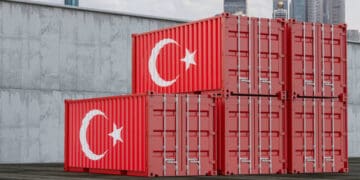Beijing, December 25, 2023 – The State Council of China has recently unveiled its adjustments to import-export tariffs for the year 2024. These measures are aimed at addressing domestic supply and demand dynamics and fostering high-quality development within the advanced manufacturing industry in the upcoming year. The alterations encompass a range of tariff-related modifications, including waivers for crucial medical supplies, reductions for resources facing shortages, critical equipment and components, certain agricultural products, and increases for specific commodities based on domestic requirements. Here, we delve into the latest changes concerning import and export items, along with the rationale behind these adjustments.
Provisional Import Tariffs on 1,010 Commodities
Effective January 1, 2024, China will impose provisional import tariff rates on 1,010 items, set lower than the Most Favored Nation (MFN) tariffs. These commodities fall into several categories:
- To safeguard public health and alleviate the financial burden on patients, anti-cancer drugs, drugs for rare diseases, and their raw materials will be subject to zero tariffs. This includes anti-cancer drugs for liver malignancies and raw materials for treating idiopathic pulmonary hypertension. Additionally, zero tariffs will apply to inhaled ipratropium bromide solution, commonly used in the clinical treatment of childhood asthma.
- Import tariffs on formula food for special medical purposes will be reduced.
- In a bid to stimulate innovation within the advanced manufacturing sector, import duties on key equipment and components, such as gas diffusion layers for fuel cells and biogas-fueled generator sets equipped with ignition piston internal combustion engines, will be lowered.
- Import tariffs will also see reductions for sweet corn, coriander, and burdock seeds.
Increased Import Duties on Specific Commodities
Starting January 1, 2024, China will raise import duties on select commodities to manage domestic supply and demand while promoting the growth of domestic industries. These changes involve:
- Within the boundaries of China’s commitments to the World Trade Organization, import tariffs on ethylene, propylene, and liquid crystal glass substrates below 6 generations will be increased.
Analysis and Implications
Analysts assert that reducing import tariffs encourages the domestic advanced manufacturing industry to adopt more advanced materials, resources, and equipment. Notably, these reductions for resources like lithium chloride, low-arsenic fluorite, and gas diffusion layers for fuel cells are expected to enhance the availability of critical raw materials, thereby stimulating related industries. This aligns with the government’s support for clean energy and environmentally friendly technologies, contributing to more sustainable economic development.
Following China’s 2023 Central Economic Work Conference (CEWC), a yearly event where the nation’s top leadership outlines the economic agenda for the forthcoming year, China’s 2024 objectives include expanding domestic consumption and attracting foreign capital to bolster economic growth. An optimized tariff system is seen as mutually beneficial.
In summary, the 2024 tariff adjustments reflect China’s commitment to securing its industrial and supply chains, reallocating resources to promote technological innovation, industrial upgrades, and sustainable development. Furthermore, these measures aim to enhance China’s involvement in the restructuring of global industrial chains and the global free trade network.
It is important for companies engaged in the import and export of taxable goods and services with China to take note of these changes, as they could have implications for their operations. Foreign stakeholders are advised to monitor these developments closely to tap into China’s growing consumer markets more effectively.
Explore the newest supply chain news at The Supply Chain Report. Visit ADAMftd.com for free international trade tools.
#China2024TariffAdjustments #ImportExportChanges #AdvancedManufacturing #ZeroTariffHealthcare #SupplyChainInnovation #SustainableDevelopment #WTOCommitments #ConsumerMarketGrowth
















